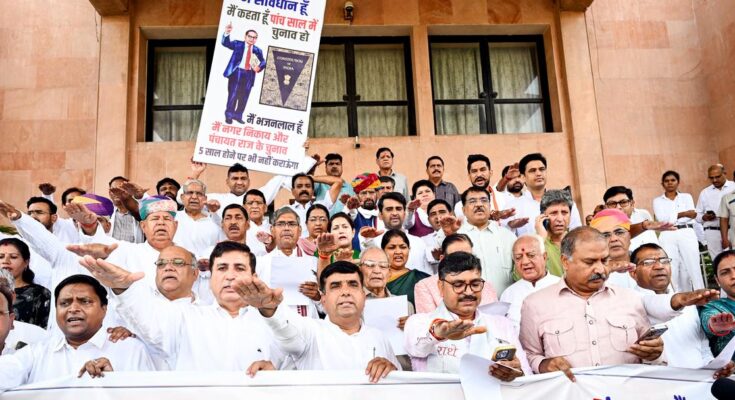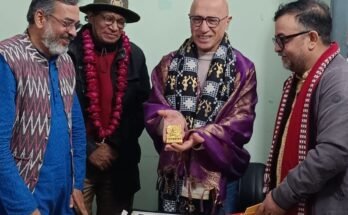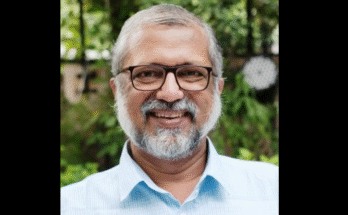The PUCL condemns the third attempt by the Government of Rajasthan to bring in the anti-conversion law by passing it in the State Assembly on 9th September, 2025. It is also important to note that the bill was passed without the participation of the opposition who were protesting denial of fair practices in running of the session by the Speaker. Such an important bill affecting major Constitutional rights was passed without debate shows the lack of democratic approach by the Speaker, who wanted to push the bill through anyhow.
. Like on earlier occasions the PUCL will try convincing the Governor or the President to whom the bill will go for assent to not sign this bill. According to the PUCL it is a draconian law, its legality is in question. It takes away from individuals, the core constitutional right to freedom of conscience by putting in place drastic machinery provisions for conversions and the punishments provided would not stand in a court of law. The Act overrides all fundamental Rights Articles in the Constituion. These provisions violate free speech and interfaith dialogue, choice, equality and free will, are overbroad, involve excessive punishment enmeshed in procedure and favour the policies of one religion.
The PUCL will send a detailed note in response to the bill passed by the State Assembly. But here are some key concerns
According to the PUCL, the problems are in every section of the September 3rd 2025 bill
a. The sheer width of the Bill is self-apparent from the definition clause in Section 2. which are, in many cases, over broad and arbitrary. draconian and have to be tested for unreasonableness. It is also clear that these definitions have no bearing on any of the entries in the State List. The definition of allurement is more wide than of 11 state laws, in operation presently. Similarly “coercion” has brought in the use of psychological pressure where no drill exists with the police today.
b. Section 3 of the Bill is a prohibitory declaration. Its import read with the criminality provisions (Section 5), implies conversion is invalid and punishable as offence even if the converted wants to continue to practice the converted faith being an adult more than 18 years of age (See Section 2(g) in this regard)
c. The Bill extends to a person who shall ‘abets, convince or conspire such conversion’. This is wide and the inclusion of “convince” mean that even ordinary conversation about and between faiths will fall within the catchment of the prohibition.
d. The marriage provisions are new and import on the right to marry being impeded by a host of provisions and presumably ‘same sex’ marriages or arrangements.
e. Ghar wapsi is sought to be excluded by Explanation I(2) which reads
“(2) If any person re-converts to his immediate previous religion, the same shall not be deemed to be a conversion under this Act.
Explanation.- For the purposes of this sub-section immediate previous religion means the religion in which the person had faith, belief or was practised by the person voluntarily and freely.”
But what does this mean how old must the original conversion be, Centuries old? Section 3 explanation is vague to mean “immediate religion” practiced voluntarily and freely.” What does immediate mean? Or does it mean the earlier conversions must be a reasonable period earlier? Without prejudice is this not to support ghar wapsi reconversions of all Muslims, Christians and Buddhists including all those in the North East; (whose religion is governed by custom) and would include Ambedkarite conversions which repudiate the original faith to put pressure on then re-convert without impunity. This is very problematic.
f. The sentencing provisions are mandatory and so draconian, that they will not pass muster under any court of law.
Just to illustrate the draconianess of the punishment provisions, the passed law states minimum of seven years imprisonment to be extended to 14 years, along with a five lakh rupee fine for violation of section 3. And if the woman is SC & ST , minor and disabled then a minimum of 10 years imprisonment extended to 20 years with a fine of minimum 10 lakhs and for mass conversion they have enhanced punishments to a minimum of 20 years extended to life with a fine of 25 lakhs.
Other onerous provisions
(a) The inquiry into injury by District Magistrate is onerous and invasive for every conversion (Section 8-9) affecting also any inter faith [marriage (Section 8-9)
(b) Parties to the offence shall include one who “counsels convinces or procures” in clear violation of free speech and dialogue (Section 11(iv)). This is over-broad and arbitrary.
(d) The burden of proof shall be on the person who caused or facilitated such provisions (Section 12). This is unconstitutional as burden of proof should always be on the prosecution.
Background of successful lobbying for Non-Presidential assent in the past
In earlier the attempts in 2005 and 2008, the PUCL had played a full role in convincing the erstwhile Governor’s with Constitutional arguments, showing how these laws were unlawful. The bills were forwarded to the Presidents of the day by the respective Governor’s, Ms. Pratibha Patil to APJ Abdul Kalam and When Sh. SK Singh was the Governor in 2008, Ms. Pratibha Patil was the President, it was due these efforts of lobbying and efforts at all levels that Rajasthan did not get a law to date. In 2018 when the 2008 bill finally found its way back to Rajasthan, with a series of questions related to the legality of certain provisions.
In the mean while the PUCL will lobby with the Governor / President to not sign the bill.
Bhanwar Meghwanshi
President PUCL, Rajasthan (9571047777)
Dr. Anant Bhatnagar
General Secretary, PUCL Rajasthan (9828052917)




